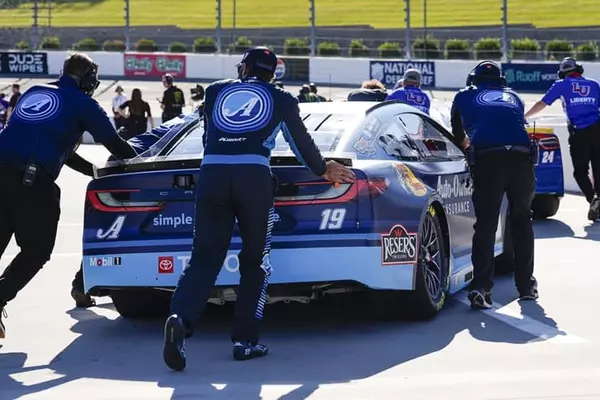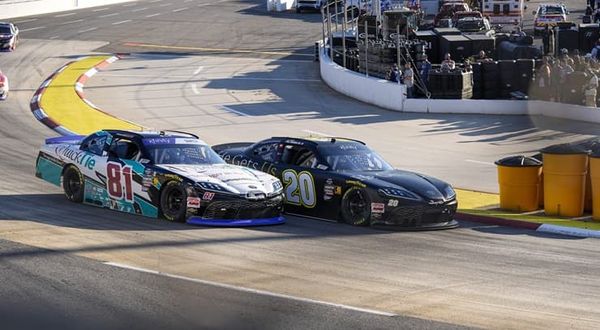
In August last year, Brazilian farmer Reinaldo Huijsmans reported a break-in at his house in the town of Maracaju, where thieves stole six legally registered weapons, including a T4 Taurus assault rifle.
Huijsmans, 39, is one of hundreds of thousands of Brazilians now registered to own guns, a group whose ranks have surged six-fold since far-right President Jair Bolsonaro was elected in 2018 and began loosening gun laws.

Two months later, Huijsmans' T4 turned up 1,300 kilometers (800 miles) away, in the hands of a heavily-armed gang of alleged bank robbers ambushed and killed by cops near the city of Varginha, in Minas Gerais state, according to an inventory of weapons apprehended from the gang seen by Reuters.
The unexpected journey of Huijsmans' assault rifle, which Reuters traced using the T4's serial number provided in his original statement to police, has not previously been reported.
Its presence in the hands of a group of alleged bank thieves highlights what Federal Police and public security experts say is an inevitable consequence of Bolsonaro's gun liberalizations: the criminal use of Brazil's fast-growing stock of legal weapons.

There is mounting evidence that legitimately acquired high-caliber weapons are leaking onto the black market.
While the fragmented structure of Brazil's security forces makes it difficult to tally how many such weapons have appeared at crime scenes, over a dozen federal and state police officers told Reuters that an increasing number of legally bought firearms are being used to commit crimes across the continent-sized nation.
Many of those have reached the most violent criminals in Brazil, the country with the world's highest number of murders.
The men holed up in Varginha were part of a new breed of bank robbers conducting a wave of high-impact assaults across the interior of the country, police say. Known locally as "novo cangaco" gangs, these specialized crews terrorize cities, blow up bank safes and use human shields to escape, often stealing millions of dollars, Reuters reported in a related story.
Bolsonaro, a nationalist former soldier, has made it easier for Brazilians to bulk-buy firearms by registering with the army as hunters, marksmen or collectors, known as "CACs." With his encouragement, nearly 700,000 Brazilians have now accredited as CACs, up almost 500% since 2018.
Bolsonaro says those weapons are being bought by "good" Brazilians, helping to reduce the murder rate, which has fallen steadily since before he took office, from 27 per 100,000 in 2017 to 19 last year. Experts dispute his theory, warning there is a strong long-term link between gun deaths and the number of firearms in circulation.
In July, Reuters reported that Brazil's Federal Police disapproved of Bolsonaro's gun policies, arguing they would put more weapons in the hands of criminals.
There are now signs those fears are becoming a reality.
"We constantly have issues with weapons bought by people with CAC permits," said one senior Federal Police officer, speaking on condition of anonymity to discuss the politically sensitive subject. "Sadly, we're going to have problems with this for decades."
Bolsonaro's office did not respond to a request for comment. The Federal Police directed questions to the Army, which grants CAC permits. It, too, did not respond.
NEO-BANDITRY
Named after "cangaceiros," the ragtag bandits who roamed the arid northeast in the late 19th century, Brazil's "novo cangaco" gangs have benefited from Bolsonaro's looser gun laws, according to police probes and interviews with officers involved in gun control and organized crime investigations.
In December last year, a group disguised in police uniforms robbed nearly 4.5 million reais from an armored truck in the southern city of Guaiba. Investigators located one of the weapons used in the assault - a Brazilian-made IMBEL 7.62 mm assault rifle - and found it had been bought by a 36-year-old CAC permit-holder paid 2,000 reais to buy the weapon on behalf of the gang, according to Rio Grande do Sul state civil police.
In July, police in the southern city of Itajai arrested three alleged bank robbers suspected of stealing around 230,000 reais in two bank heists. The group, which police said was planning another imminent assault, was found with two pistols, a shotgun and two T4s - all of which were legally acquired by one of the CAC-registered gang members, Eduardo Ferraz, the lead detective on the case, told Reuters.
Of all the weapons now available to Brazil's gun fans, the T4 has emerged as the weapon of choice for its gangsters.
Manufactured by Brazilian gunmaker Taurus SA, the T4 hit the local market in 2019 as a direct result of Bolsonaro's newly liberalized gun laws. It has been a huge success for the company, which has sold around 60,000 units of the 5.56 mm semi-automatic carbine, helping to lift its share price around 350% since the start of 2019.
Before the looser rules, an imported 5.56 mm assault rifle equivalent to the T4 cost 60,000 reais on the black market, according to Ivan Marques, managing director of The International Action Network on Small Arms.
But now, Marques said, anyone registered as a CAC can legally buy a T4 "for 16,000 reais with a factory guarantee."
Half a dozen federal officers told Reuters that Brazil's gangs - and particularly Sao Paulo's First Capital Command (PCC), South America's most powerful criminal franchise - are increasingly using legalized gun-owners as straw buyers to replenish arsenals that, one officer said, will last "a hundred years."
A common tactic used by gangs - as seen in the case of Huijsman's T4 - is to steal weapons from CAC permit-holders' homes.
But sometimes, police say, the legal buyer is in on the ruse. Last month, Sao Paulo state civil police said they had arrested a CAC permit-holder with 700 5.56mm rounds in his car. He confessed to having sold weapons to the PCC that he had previously reported as stolen.
Huijsmans told Reuters he was an innocent victim of a burglary. Jackson Frederico Vale, the detective probing Huijsmans' case, said he didn't suspect the farmer of foul play.
In other cases, gangsters are withholding their criminal pasts when they apply for CAC permits, banking on overworked army bureaucrats to wave through their applications.
In July, Federal Police in the Minas Gerais city of Uberaba arrested a well-known local criminal with family ties to the PCC for failing to alert army CAC certifiers to his criminal background. The 36-year-old, who had previously been charged with murder, drug trafficking, and theft, was found with seven firearms, including a T4.
NOVO CANGACO
Situated on a major cocaine trafficking route between Paraguay and Brazil's Atlantic ports, Uberaba and nearby towns in Minas Gerais have proven fertile ground for "novo cangaco" raids. The wealthy beef-farming city has suffered two major bank robberies in the last five years, including the 2019 assault of its main Banco do Brasil branch.
On Oct. 31, 2021, Minas Gerais military police and Brazil's Federal Highway Police carried out two raids against alleged bank robbers hiding out near Varginha, killing 26 of them. No cops were injured, with the lopsided toll leading to accusations of illegal executions that are now being probed by the Federal Police.
As justification for the raids, Minas Gerais military police briefed reporters that the gang was about to rob 65 million reais ($13 million) from Varginha's Banco do Brasil. They also said they believed the alleged robbers were the same crew that had hit a Banco do Brasil branch in the city of Aracatuba a few months earlier, although they presented no evidence.
Many of the 26 people killed were career criminals, with checkered pasts including murder, theft and drugs charges, according to investigators. At least four were from Uberaba.
A Federal Police officer involved in the investigation of the killings agreed the crew was planning a robbery. But the officer, speaking anonymously to discuss an ongoing probe, said the target was an armored vehicle carrying 20-30 million reais.
After the raids, police combed through the gang's arsenal. They found a .50 machine gun, capable of taking down a low-flying helicopter, two 7.62 mm assault rifles, and around a dozen 5.56 mm carbines - including Huijsmans' T4.
Marques, the gun expert, said Huijsmans' rifle wouldn't be the last legally acquired firearm to turn up at a crime scene.
"It's certain that many of those weapons which entered circulation in the last four years will end up in the hands of criminals," he said.
($1 = 5.1964 reais)
(Reporting by Gabriel Stargardter; Editing by Brad Haynes and Frank Jack Daniel)







